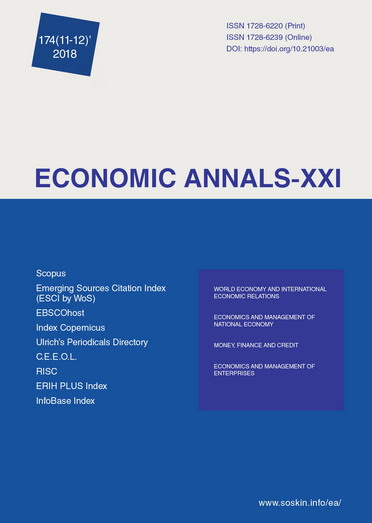Alterglobalization via the inclusive circular economy paradigm
Alterglobalization via the inclusive circular economy paradigm
Author(s): Andriy Krysovatyy, Anatoly Mokiy, Roman Zvarych, Irina Ya. ZvarychSubject(s): Supranational / Global Economy, Business Economy / Management, Socio-Economic Research
Published by: Institute of Society Transformation
Keywords: Alterglobalization; Capital Outflow; Circular Supply Chains; Decoupling; Global Competitiveness; Global Inclusive Circular Economy; Noncompetitiveness; Circular Supply Chains;
Summary/Abstract: The article is devoted to a study of economic imperatives of alterglobalization from the point of view of various scientific schools. The indicators of global development are analysed and the idea of free market self-stabilization has been verified in the context of the implementation of the Washington Consensus. The research is focused on the basic critical remarks to the processes of globalization, in particular on the phenomena of capital outflow and non-competitiveness as factors of its divergence. It has been determined that the trend towards globalization of international markets leads to a fundamental contradiction in which inequality inherent in this market contributes to increasing inequality in the developing world. It has been proved that the current model of economic globalization has some negative aspects characterised by sharp conflicts between different actors of global international relations. Actualization of the new alternative model of the world economy as a new stage of the process of economic transformation is required. It is pointed out that a circular economy is a new economic model which emphasises the reuse of materials and creation of added value through services and smart solutions. In this context, it is shown that such an integrated approach can help to understand how to maximize potential benefits, prioritize and offer different welfare models that can be obtained in a healthy environment. Ultimately, an inclusive circular economy must provide not only jobs and income, but also health, the environment and the future.
Journal: Економічний часопис - ХХІ
- Issue Year: 174/2018
- Issue No: 11+12
- Page Range: 4-9
- Page Count: 6
- Language: English

